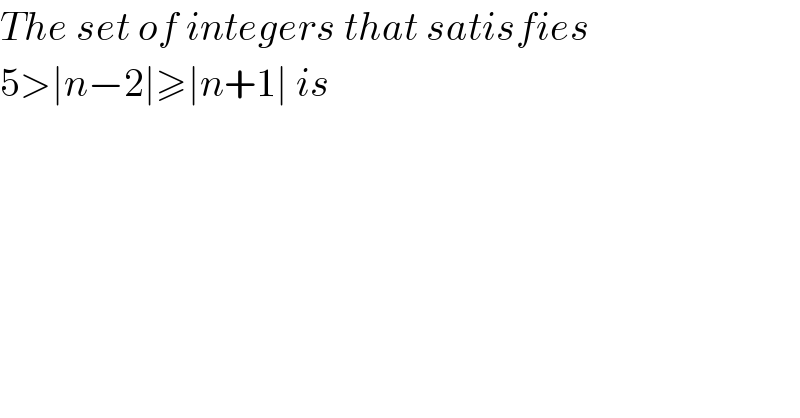
Question and Answers Forum
Question Number 33468 by NECx last updated on 17/Apr/18

Answered by MJS last updated on 17/Apr/18
![25>(n−2)^2 n^2 −4n−21<0 n=2±(√(25))=2±5 ⇒ n∈]−3;7[ (n−2)^2 ≥(n+1)^2 6n≤3 n≤(1/2) ⇒ n∈]−∞;0] ]−3;7[ ∩ ]−∞;0]=]−3;0] ⇒ ⇒ n∈{−2; −1; 0}](Q33469.png)
Commented byNECx last updated on 17/Apr/18

| ||
Question and Answers Forum | ||
Question Number 33468 by NECx last updated on 17/Apr/18 | ||
 | ||
Answered by MJS last updated on 17/Apr/18 | ||
![25>(n−2)^2 n^2 −4n−21<0 n=2±(√(25))=2±5 ⇒ n∈]−3;7[ (n−2)^2 ≥(n+1)^2 6n≤3 n≤(1/2) ⇒ n∈]−∞;0] ]−3;7[ ∩ ]−∞;0]=]−3;0] ⇒ ⇒ n∈{−2; −1; 0}](Q33469.png) | ||
| ||
Commented byNECx last updated on 17/Apr/18 | ||
 | ||